We’ve all been there; whether it’s losing the TV remote right before a movie night or not knowing where you’re keys are when you’re already running late it’s frustrating. With the Apple AirTag, Samsung Galaxy SmartTag, and Tile trackers it’s no longer necessary either.
According to motoring organization, the RAC, 43% of drivers regularly spend an average of two minutes 10 seconds every day looking for their car keys, adding up to hours over the year. With these devices, you can greatly cut down that time.
But which tracker is best for your needs? While these small devices can all be attached to your keys, bags and put inside wallets there are some subtle differences that will make one better for you than another. We’re here to compare them all so you know if you should go with Tile, Apple, or Samsung to keep an eye on your stuff.
Best AirTag, SmartTag and Tile deals
If you’ve already decided which trackers you’re a fan of then here are the best deals we’ve found for Tile, AirTags, and SmartTags in your region.
FAQ
What is a location tracker?
A location tracker is a small Bluetooth gadget the size of a keyfob that can be clipped or stuck to personal possessions to ensure if you misplace the item, it can be found quickly with the help of your smartphone.
How does it work?
The tracker forms a Bluetooth connection with your smartphone or tablet, and if you do misplace the item it’s attached to a companion app you can play a tune on the tracker so it’s easier to find, with an indicator of how close or far you are from the item displayed on your phone’s screen.
If the item is out of Bluetooth range, you can see its last-known location on a map, and mark it as lost. If other users pass close to your lost item, its location will be identified and you’ll be alerted to its new location.
What can it be attached to?
Anything you don’t want to lose. Some location trackers have loops so they can be connected to keys or bags, while others can be slotted into wallets and some even have an adhesive pad on the back so they can be stuck to items like remote controls - the possibilities are endless.
Do they require a subscription?
Location trackers can be used free of charge once you’ve purchased the device itself, however, some offer a subscription service that provides a history of its movement, potentially making it easier to find.
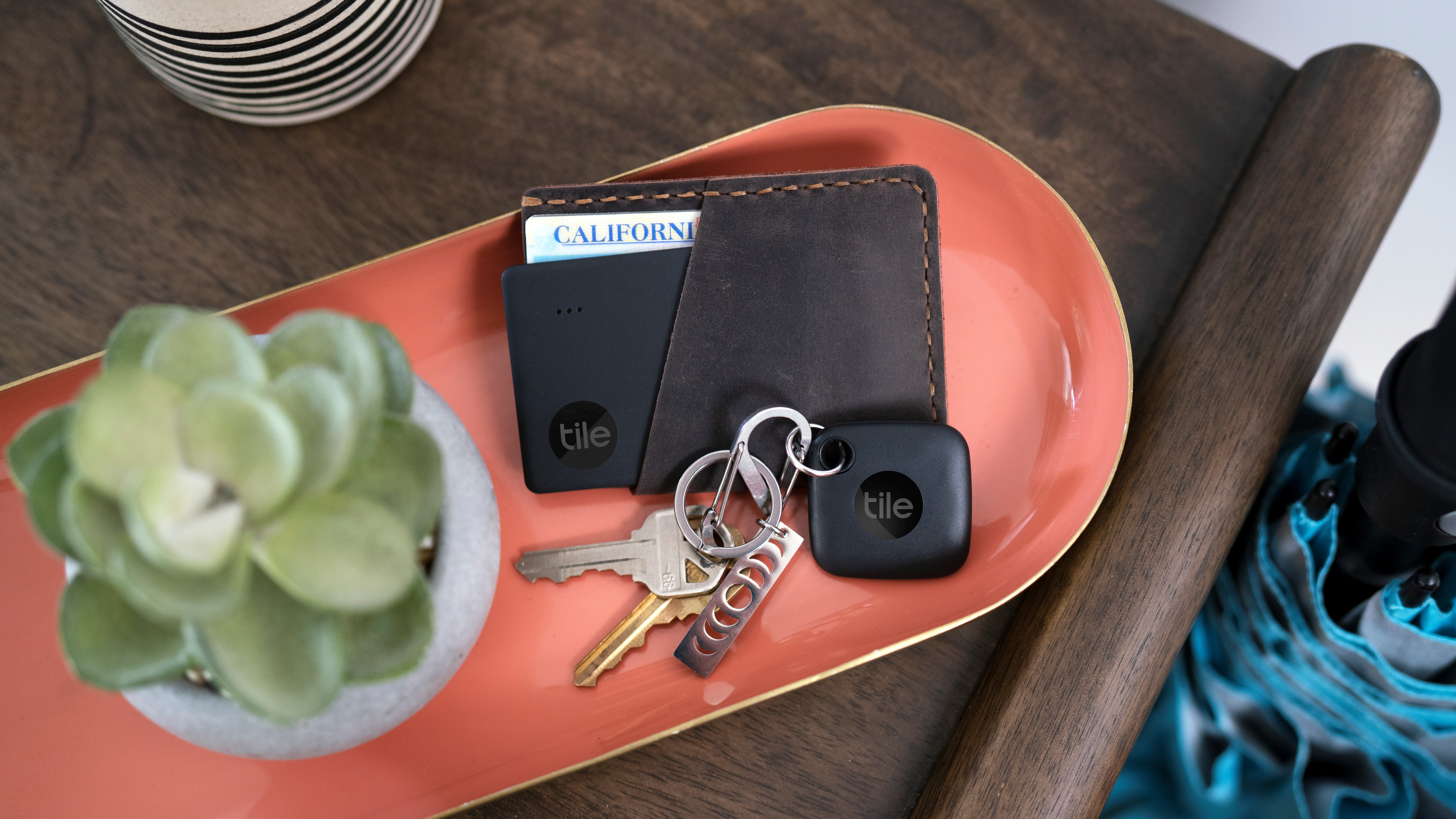
Smartphone compatibility
Honestly, the biggest factor at play when comparing these trackers will be what kind of smartphone you have. That’s because the Apple AirTag and Samsung SmartTag are only compatible with their respective brand’s smartphones.
If you aren’t on an iPhone 13 (or at least an iPhone running on iOS 14.5 or later) then the AirTag will be useless to you; the same goes for the SmartTag if you aren’t on a Samsung device that supports Android 8 or higher you’re out of luck.
Tile trackers on the other hand are compatible with both iOS and Android devices. This makes them perfect for platform-agnostic users who like to be able to switch smartphone brands when new tech comes out as well as those using Google Pixels and other phones from brands without dedicated trackers.
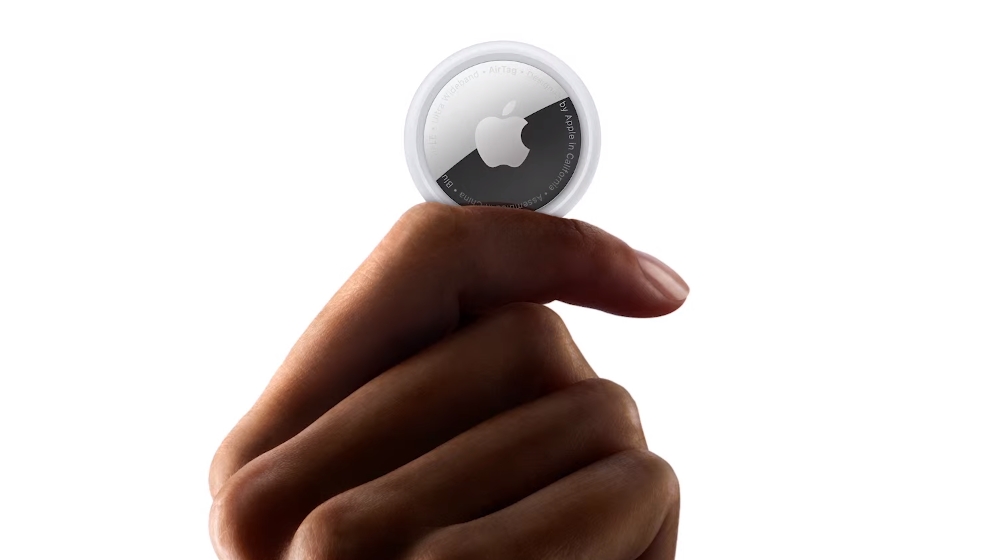
Design
Tile offers the most variety in design across their trackers which makes different models perfect for different use cases. The Tile Mate and Tile Pro have a hole punched in them meaning they’re great for attaching to keys, and they’re sturdy enough to be dropped inside a bag too.
Meanwhile, the Tile Slim is shaped like a credit card - making it a perfect fit inside any purse, wallet or passport holder. Last but not least the Tile Sticker has an adhesive edge allowing you to stick it to anything from TV remotes to glasses cases.
The Galaxy SmartTag comes with two fairly similar-looking designs, both of which strongly resemble the Tile Mate. This makes them perfect for slipping onto a keyring or putting in a bag but not much else.
The AirTag from Apple is the only one that can’t be put on a keyring without paying extra for a keyfob attachment from Apple or a third-party vendor. They’re a disc shape that measures 3.19 x 3.19 x 0.8cm. This makes them about the size of a quarter or £2 coin so you should find space from them in a wallet, purse, or slipped into a bag.
The most recent 2021 range of Tiles and the Apple AirTags all have an IP67 waterproof and dust resistance rating, so they can withstand up to 1m of water for no longer than 30 minutes.
Unfortunately, the Galaxy SmartTags are only rated IP53, that’s a fair drop down and may make you want to reconsider relying on these trackers in the outside world.
Thankfully the SmartTag gains a few points back for having a replaceable battery that lasts for up to one year depending on use. This is the same as the Tile Pro and Apple AirTag. The Tile Mate, Slim, and Sticker on the other hand feature non-replaceable batteries that support up to three years of life.
It’s a shame you’ll have to trash these trackers when the three years is up but the advantage is you’ll then be able to try out whatever new upgrades and features Tile has added over the past few years since you last upgraded.
Of all the available trackers the Tile Sticker is definitely the most versatile with its adhesive side that lets you stick to pretty much anything - though you will need to replace it completely when the battery runs dry.
If you’re just looking for something to go in your bag, on the other hand, wallet or on your keys specifically you’ll be able to choose a tracker from Tile, Apple, or Samsung.
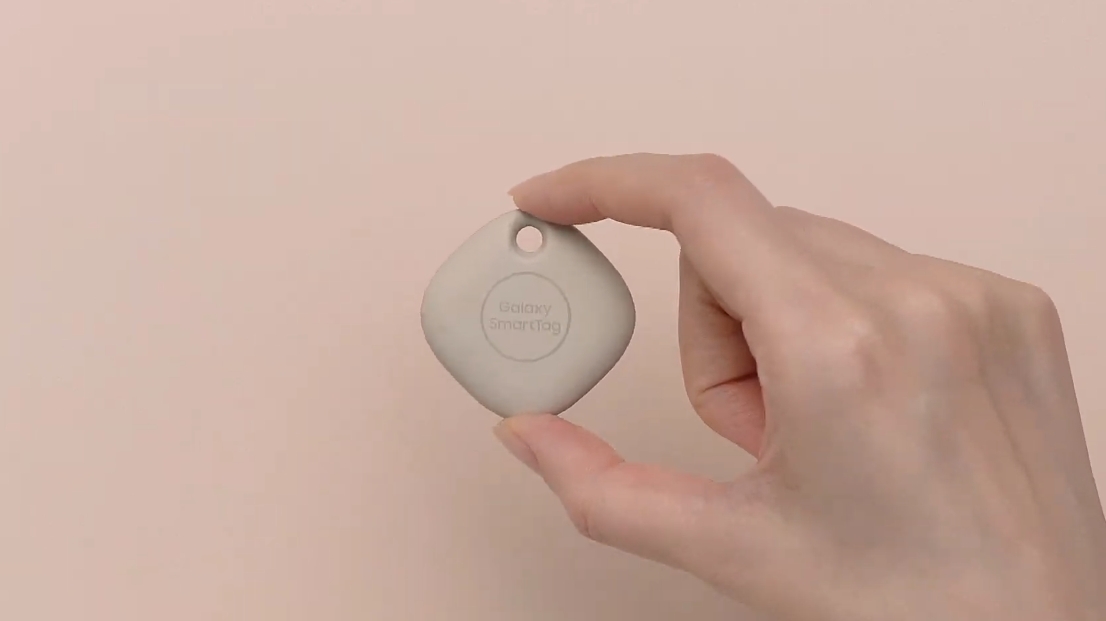
Price
AirTags and SmartTag are the more expensive of the three trackers for the most basic model, with a single AirTag priced at $29 / £29 / AU$45, while a four-pack will set you back $99 / £99 / AU$149 and are available now.
The Samsung Galaxy SmartTag retails for $29 / £29 (roughly AU$40) while the SmartTag+ goes for $39 /£39 (around AU$55).
You can pick up any of Tile’s 2021 models today from its official store with the Tile Mate costing $24.99 / £19.99 / AU$34.95, the Tile Slim $34.99 / £29.99 / AU$44.95 and Tile Sticker $29.99 / £24.99 / AU$34.95. The premium Tile Pro will set you back $34.99/ £29.99 / AU$49.95.
We should add that the AirTag might be a little more expensive depending on your intended use. If you want to use it on your keys then a fob will set you back around $30 / £30 / AU$40 for an official Apple accessory - you can find third-party options available for a bit less though.
What that all means is that for the best price you want the Tile Mate costing $24.99 / £19.99 / AU$34.95, with the Tile Sticker and Samsung Galaxy SmartTag coming in at second and third respectively for affordability.
In addition, we regularly see Tile and Samsung discounts especially around sales periods like Black Friday. This means you can save even more compared to AirTags -with Apple only really offering discounts on products just before a new version is set to release.
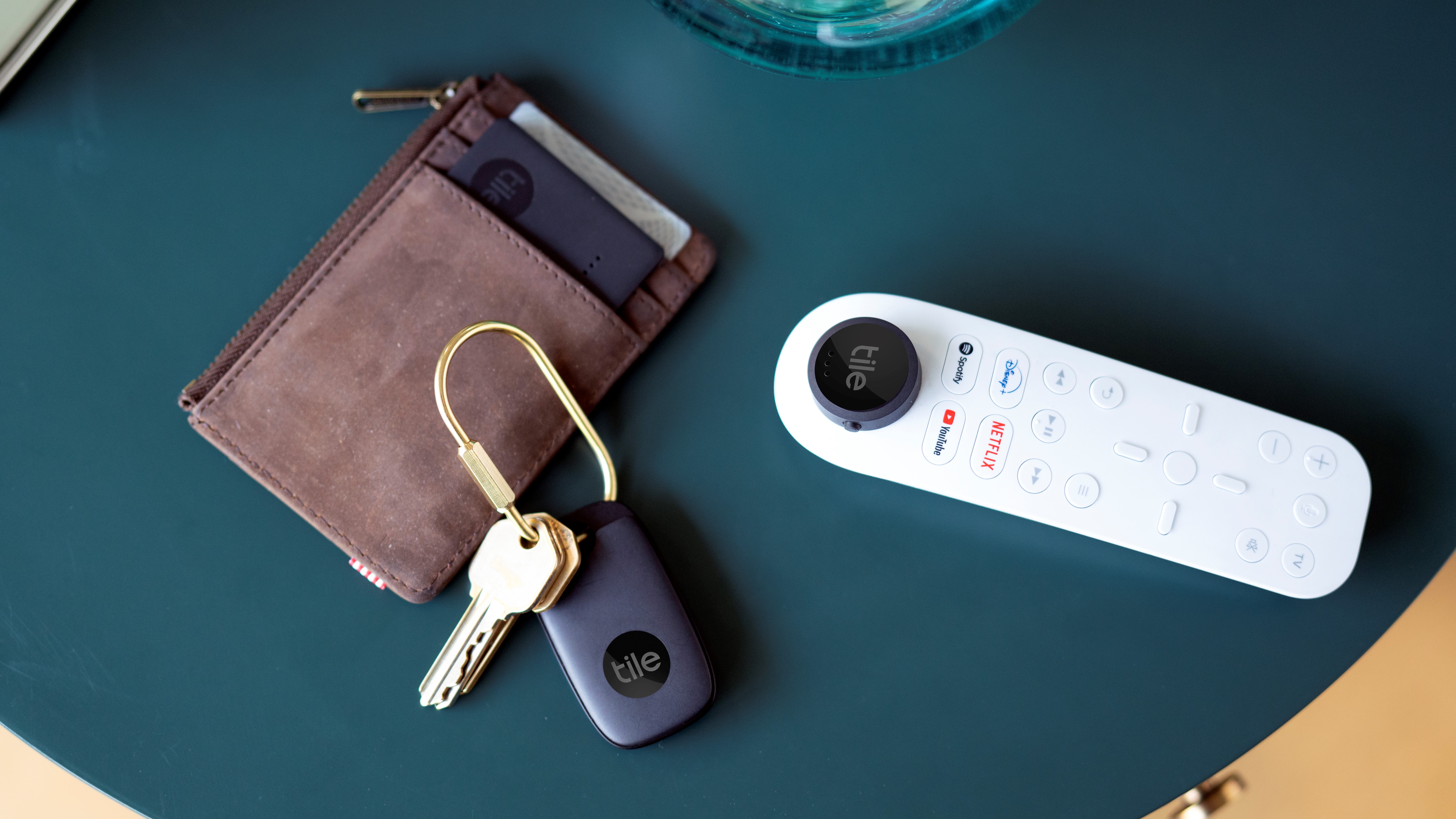
Connection and tracking
With all those other questions sorted it’s time to look out how well these trackers stack up against each other in terms of their tracking performance.
The Tile Pro, Samsung Galaxy SmartTag, and Apple AirTag all offer impressive ranges which are boasted to reach around 400ft (or over 100m). In practice (especially if there are walls between you and the trackers) you might find that these figures aren’t the most accurate but even in a large house you shouldn’t have trouble finding your lost things.
The Tile Mate, Tile Slim and Tile Sticker only offer a range of 250ft (around 75m) but actually we found this to be more than sufficient most of the time for regular use.
While these trackers are great for finding stuff at home, you’ll also want to know how effective they are at helping users find items they’ve lost in the outside world.
All the trackers rely on an anonymous network of users to be able to find them. For Apple AirTags it’s every iPhone user that signs up to the Find My service while with Samsung SmartTags the network is every user who has agreed to be a Find Node.
Tile Trackers rely on people who have installed the Tile app as well as a growing number of third-party partners such as Amazon Sidewalk in the US - allowing Amazon devices to extend the range of the Tile network if users opt-in.
From our testing in the UK, we found it took around 30 minutes for an AirTag to be detected by a passing iPhone, while the Tile didn’t get picked up for around 12 hours. However, for the best data we’d need to lose hundreds of trackers all over the world
Instead of doing that we’ve asked Tile, Apple and Samsung for information on the rate at which users find lost objects. So far Tile has let us know that trackers that are registered as lost (that means they weren’t within BlueTooth range of their owner) find their way home over 90% of the time.
As we receive information from Apple and Samsung we’ll update this page.
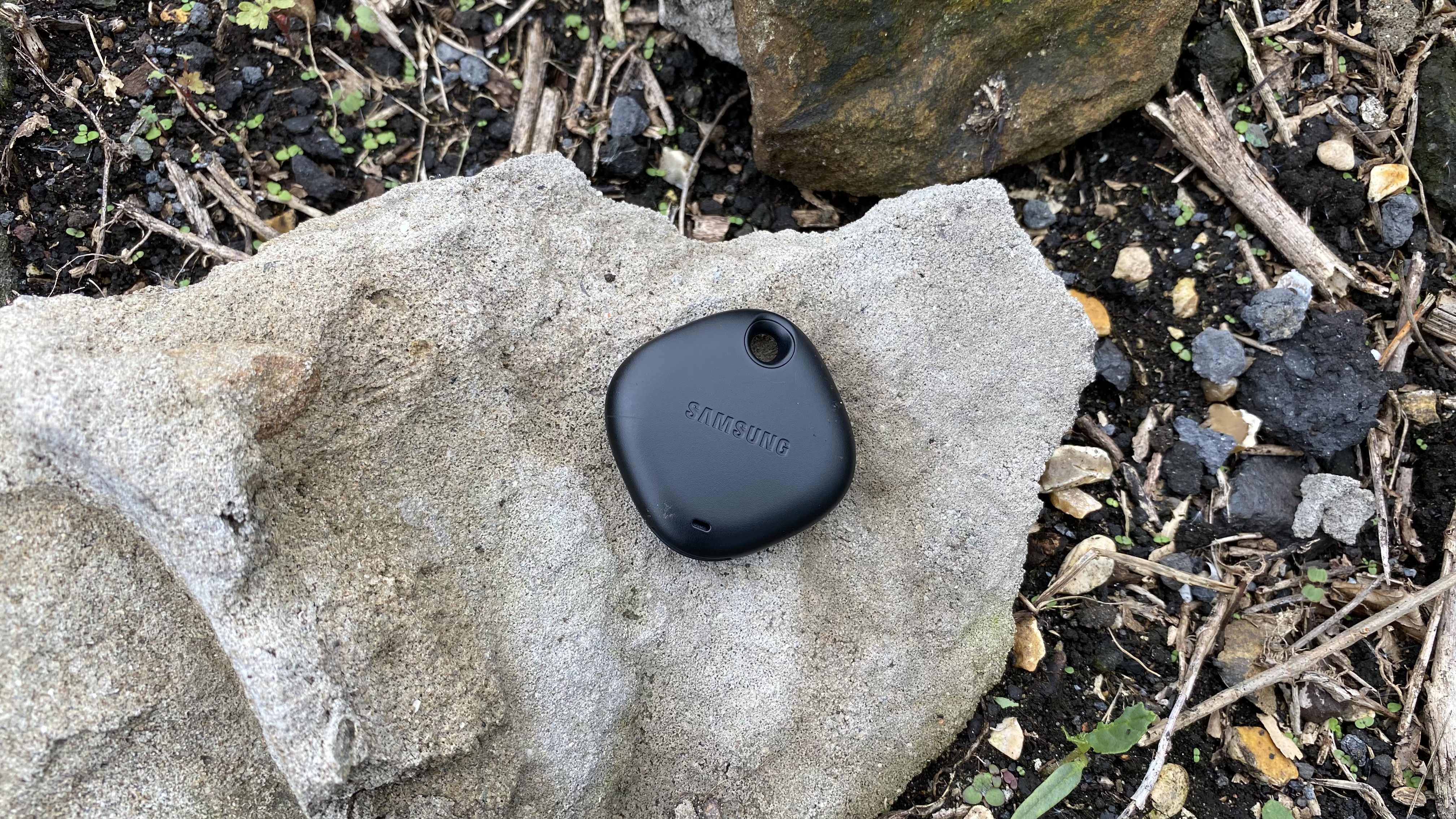
Features
Beyond basic BlueTooth tracking, these tags also offer a few extra features to help make them more usable and findable to their owners.
For Apple AirTags and Galaxy SmartTag+ its ultra-wideband tracking. If you have an iPhone 11 or above - or the Samsung Galaxy S21, Galaxy S21 Plus, and Galaxy S21 Ultra - you’ll be able to use precision finding to be guided to the missing tracker by following directions on your phone. For this to work you will have to be within around 30ft / 10m of the tracker.
Currently, Tile doesn’t offer a tracker with UWB support, but it plans to launch the Tile Ultra with the feature in 2022.
Tile trackers do however have a feature that lets you double-tap the Tile logo (or a side button on the Tile Sticker) that will allow you to locate your phone by making it ring if it is within BlueTooth range of the tracker. This ‘reverse tracking’ feature is also present on the Samsung Galaxy SmartTags by double-tapping the Samsung logo.
Additional Tile and AirTag trackers allow those from outside the network to find out how to return your stuff to you. For the Tile Slim, Mate, and Pro it’s via a QR code on the back - when the Tile is registered as lost you can optionally provide basic contact info so that someone can let you know they have your lost item.
With the AirTag it’s via NFC scanning, which again allows others to see your basic contact info if you allow them to.
Overall we’d say it’s a tie in terms of additional features however we’d maybe have to give it Tile right now. While UWB tracking is cool you have to be quite close already to make it effective, when you’re within 30ft a ringing tracker is just as easy to locate.
The reverse track tool is genuinely very useful when you have your wallet and keys but not your phone, and the QR code is a lot easier for people to spot and scan than an NFC chip - which makes it much easier for less tech-savvy good samaritans to help you out.
Tile can also show a 30-day location history for its trackers, but you’ll need to subscribe to Tile Premium for $2.99 / £2.99 / AU$2.99 a month - it will also warn you if you’ve left the house without an essential Tile, such as the one attached to your wallet or house keys, a feature not offered by AirTags or Galaxy SmartTags.
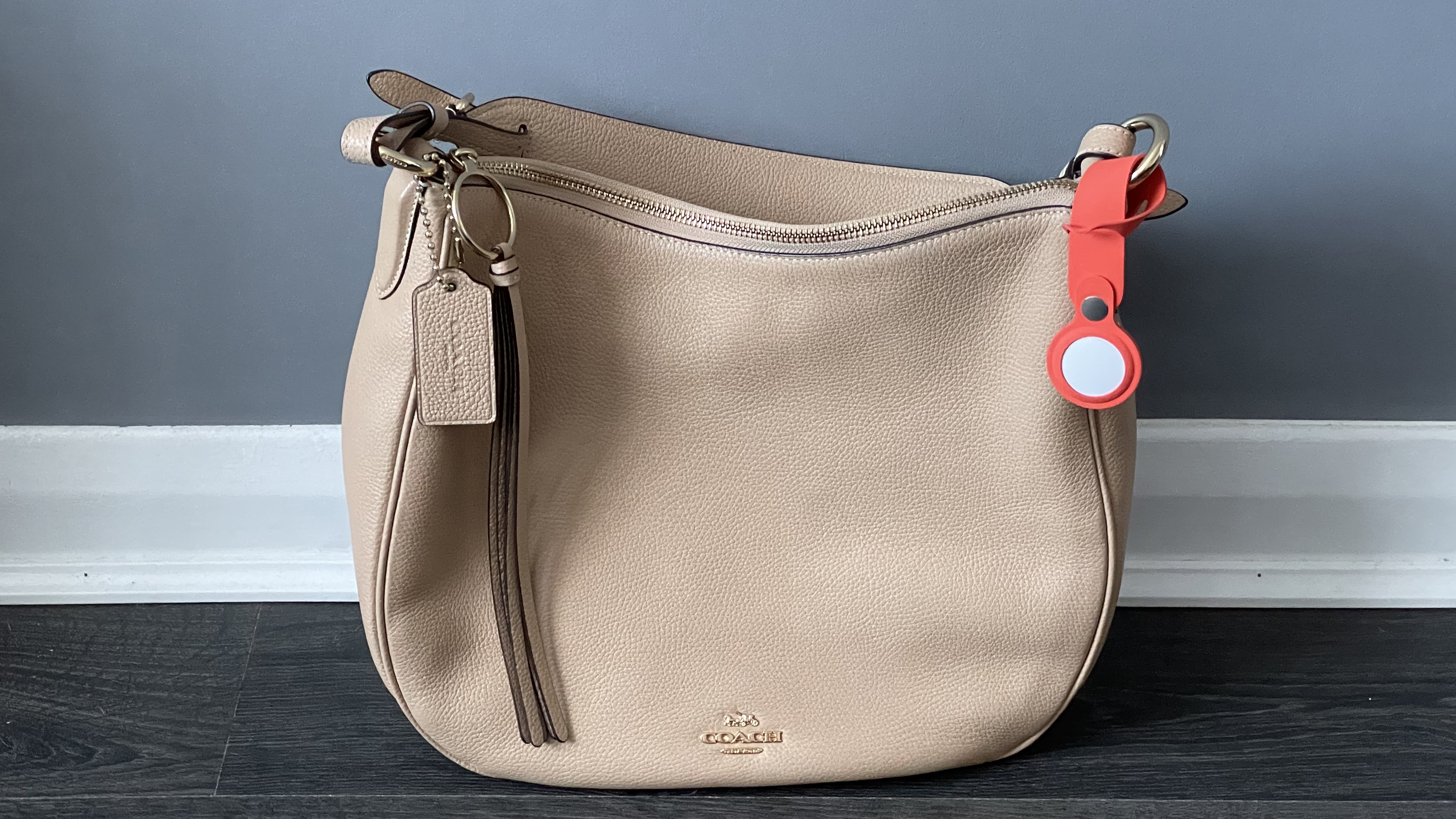
Privacy
The growing popularity of trackers has also understandably meant a growth in concerns over privacy.
To combat this Apple has put in place several measures. An AirTag can only be set up by its owner, it can’t be activated on behalf of someone else, and iOS devices can identify and alert their owner if an unknown AirTag is traveling with them regularly.
If you aren't an iOS user the AirTag will eventually start playing a sound if it’s been separated from its owner for a long period of time but still moves location.
Tile plans to introduce its own measures very soon too. The Scan and Secure feature has been created with guidance from an advocacy organization that specializes in domestic abuse and the misuse of technology. The feature will allow users of the Tile app to scan for and detect nearby Tile devices and identify to find out if unknown devices could be tracking them.
Scan and Secure will be compatible with all but the very oldest Tile trackers – which only make up about 3% of those in circulation. Additionally, you won't need to sign up for a Tile account or use the trackers yourself to use Scan and Secure.
A similar feature called Unknown Tag Search has been added to Samsung's SmartThings app however we couldn't work out how to use the feature on our Google Pixel Android phone.
Apple has plans to launch an Android app of its own to find nefarious AirTags but that hasn't launched yet.
- Check our the best smart home devices deals
from TechRadar - All the latest technology news https://ift.tt/2QKsHW8

0 comments:
Post a Comment